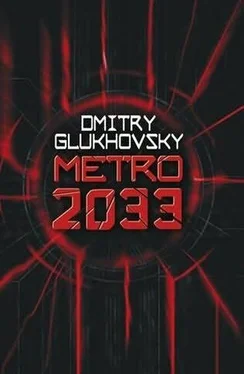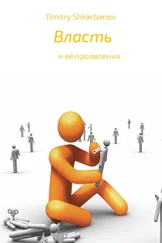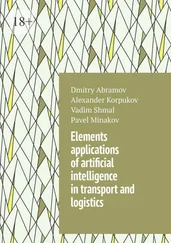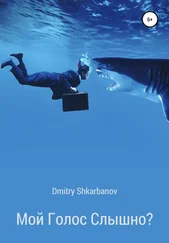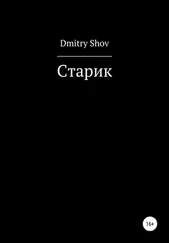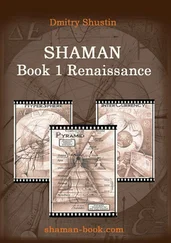‘What’s happening tomorrow?’
‘Tomorrow we’re going to blow everything to hell. We are placing dynamite three hundred metres from Prospect in both tunnels and everything will be just a fond memory.’
‘But why don’t you just help them? Certainly Hansa has the power?’
‘I told you. There’re vampires there. It’s swarming with them, there’s not enough backup.’
‘But what about the people from Rizhskaya? And from VDNKh itself?’
Artyom couldn’t believe his ears.
‘We alerted them several days ago. They’re trickling in. Hansa is taking them. We aren’t animals. But they had better hurry. When the time runs out, it’s so long. So you should try to get there and back as soon as possible. What do you have there? Business? Family?’
‘All of it,’ Artyom replied, and the border guard nodded knowingly. Ulman was standing in the arch, quietly speaking with a tall young man and a stern man in a machinist’s coat and with the full regalia of the station chief.
‘The vehicle is up above and the tank is full. In any event, I still have a radio and protective suits, and another Pecheneg and a Dragunov sniper rifle.’ The youth pointed at two large black bags. ‘We can go up at any time. When do you need us up there?’
‘We’ll be monitoring the signal every eight hours. We should already be in position by then,’
Ulman answered. ‘Is the pressurized gate working?’ he addressed the chief.
‘It’s OK,’ the chief confirmed.
‘When you give the word. Only we’ll have to drive off the people so they aren’t frightened. That’s all I have. So, we’ll rest for about five hours or so and then full speed ahead,’ Ulman summed up. ‘So, Artyom? Lights out?’
‘I can’t,’ Artyom told him, pulling his partner aside. ‘I have to get back to VDNKh. To say goodbye and just to look around. You were right, they will be blowing up all the tunnels from Prospect Mir. Even if we come back alive from there, I won’t see my station any more. I have to! Honestly.’
‘Listen, if you are just afraid of going up, to your dark ones, just say so,’ Ulman nearly started, but on seeing Artyom’s look, he stopped short. ‘It was a joke. Excuse me.’
‘Honest, I have to,’ Artyom repeated. He couldn’t explain his feeling, but he knew that he had to get to VDNKh at any cost.
‘Well, if you have to, then you have to,’ the fighter replied, embarrassed. ‘You won’t have time to get back, especially if you intend to say goodbye to someone there. Here’s what we’ll do: we’ll ride from here along Prospect Mir in the vehicle with Pashka – that’s him with the cases. We had intended to go directly to the tower earlier, but we can take a detour and run by the old entrance to the VDNKh metro. Everything new has been turned upside-down, your people have to know that. We’ll wait for you there. In five hours and fifty minutes. Whoever doesn’t make it is late. Did you get a suit? Do you have a watch? Here, take mine, I’ll get one from Pashka.’ He unfastened the metal bracelet.
‘In five hours, fifty minutes.’ Artyom nodded, shook Ulman’s hand and raced towards the blockhouse. Seeing him again, the border guard shook his head.
‘And nothing else strange is happening in this crossing?’ Artyom asked. ‘Are you here about the pipes or what?’
‘It’s nothing. They patched them up. They say your head will spin when you are going by,’ the border guard answered.
Artyom thanked him with a nod, turned on his flashlight and walked into the tunnel. Different thoughts raced through his head for the first ten minutes: about the danger of the crossing laying ahead, about the considered and reasonable way of life at Byelorusskay, then about the ‘carriers’ and real trains. But gradually the tunnel’s darkness sucked these trivial thoughts, this confusion of flashing pictures and snatches of phrases, from him.
At first he grew calm, empty, then he began to think about something else. His journey was coming to an end. Even Artyom could not say how long he had been away. Maybe two weeks had passed, perhaps more than a month. How simple, how short the trip had seemed to him when, sitting on the handcar at Alekseevskaya, he had been looking at his old map in the light of the flashlight, trying to plan a route to Polis… An unknown world lay before him then, about which he knew nothing for certain. It had been possible to develop a route by considering only the length of the journey and not how it would change the traveller walking it. Life had turned out to be very different, confused and complex, mortally dangerous. Even casual companions, sharing small segments of his trip with him, had paid for it with their lives. Artyom remembered Oleg. Everyone has his own predestination, Sergei Andreyevich had told him at Polyanka. Could it have been that the terrible, nonsensical death spared other people and allowed them to continue their affairs? Artyom grew cold and uncomfortable. To accept such a proposition, to accept this sacrifice, meant that he had to believe that his journey could only be at the cost of somebody’s life… Could it be that in order to fulfil his predestined fate others had to be trampled, destroyed, crippled? Oleg, of course, had been too young to ask why he had been born. But if he had thought about it, he would hardly have agreed to a fate. The faces of Mikhail Porfirievich, Daniel and Tretyak passed before his eyes. Why did they die? Why did Artyom himself survive? What gave him this capacity, this right? Artyom was sorry that Ulman, who with one mocking remark could dispel his doubts, was not with him now. The difference between them was that the trip through the metro had forced Artyom to see the world as if through a multi-faceted prism, but Ulman’s Spartan life had taught him to view things simply: through the sight of a sniper’s rifle. He didn’t know which of the two of them was right, but Artyom no longer was able to believe that there can be only one, single true answer to every question. Generally in life, and especially in the metro, everything was unclear, changing and relative. Khan had explained this to him at first using the example of the station clock. If such a basis for perceiving the world, as time, turned out to be farfetched and relative, then just what could be said about other indisputable views of life? All of it: from the voice of the pipe in the tunnel through which he was walking, and the shining of the Kremlin stars to the eternal secrets of the human soul, had several explanations. And there were many answers to the question, ‘why?’ The people Artyom had encountered, from the cannibals at Park Pobedy to the fighters of the Che Guevara brigade, knew how to answer it. All of them had their own answers: the sectarians and the Satanists, the fascists and the philosophers with the machine guns, like Khan. It was for this reason that it was difficult for Artyom to choose and accept only one of them. Getting a new version of the answer every day, Artyom was unable to compel himself to believe what was true, because the next day another, no less precise and comprehensive one, might arise. Whom should he believe? And in what? In the Great Worm – the cannibalistic god, shaped like an electrified train and populating the barren, scorched earth with living beings; in the wrathful and jealous Jehovah; in his vainglorious reflection – Satan; in the victory of communism in the whole metro; in the supremacy of the fair-haired men with turned-up noses over curly haired, swarthy races Something suggested to Artyom that there were no differences in any of it. Any faith served man only as a crutch supporting him. When Artyom was young, his stepfather’s story about how a monkey took up a cane and became a man made him laugh. After that, apparently, the clever macaque no longer let the cane out of his hand because he couldn’t straighten up. He understood why man needs this support. Without it, life would have become empty, like an abandoned tunnel. The desperate cry of the savage from Park Pobedy when he realized that the Great Worm was only a contrivance of his people’s priests still resonated in Artyom’s ears. Artyom felt something similar, finding out that the Unseen Observers did not exist. But for him, repudiation of the Observers, the Snake and other metro gods made life easier. Did that mean that he was stronger than the others? Artyom understood that was not true. The cane was in his hands, and he was supposed to become brave enough to recognize it. His awareness that he was carrying out an assignment of huge importance, that the survival of the whole metro was in his hands and that this mission hadn’t been entrusted to him by chance, served as his support. Consciously or not, Artyom looked for proof in everything that he had chosen for carrying out this mission, but not like Hunter, but someone or something greater. To destroy the dark ones, to save his home station and those near and dear from them and to stop the destruction of the metro – that was his task. And everything that had happened to Artyom during his travels proved only one thing: he was not the same as everyone. Something special had been intended for him. He was supposed to make mincemeat of and destroy the vermin which otherwise would make short work of the remnants of mankind. While he was walking along this path, faithfully interpreting the signs being sent his way, his will for success was overcoming reality, playing with statistical probability, warding off bullets, blinding monsters and enemies, and compelling allies to be at the right location at the right time. How else could he understand why Daniel had turned over to him the plan of the missile unit’s location, and this unit by some miracle had not been destroyed decades ago? How else to explain that, against all common sense, he had met one of the few, maybe only living missile men in the whole metro? Had Providence placed powerful weapons into Artyom’s hands personally and sent him a man to help deliver a death blow to the inexplicable and merciless force, crushing it? How else could all the miraculous rescues of Artyom from the most desperate situations be explained? While he believed in his own predestination, he was invulnerable, although people who accompanied him perished one after the other. Artyom’s thoughts turned to what had been said by Sergei Andreyevich at Polyanka about fate. At that time those words had driven him forward, like a new, lubricated spring installed in the worn-out, corroded mechanism of a wind-up toy. But at the same time, they were unpleasant for him. Maybe it was because this theory deprived Artyom of his own free will and forced him to submit to the story line of his own fate. But, on the other hand, how was it possible for him to refute the existence of this line of thinking after everything that had happened to him? He could no longer believe that his whole life was only a succession of random events.
Читать дальше
